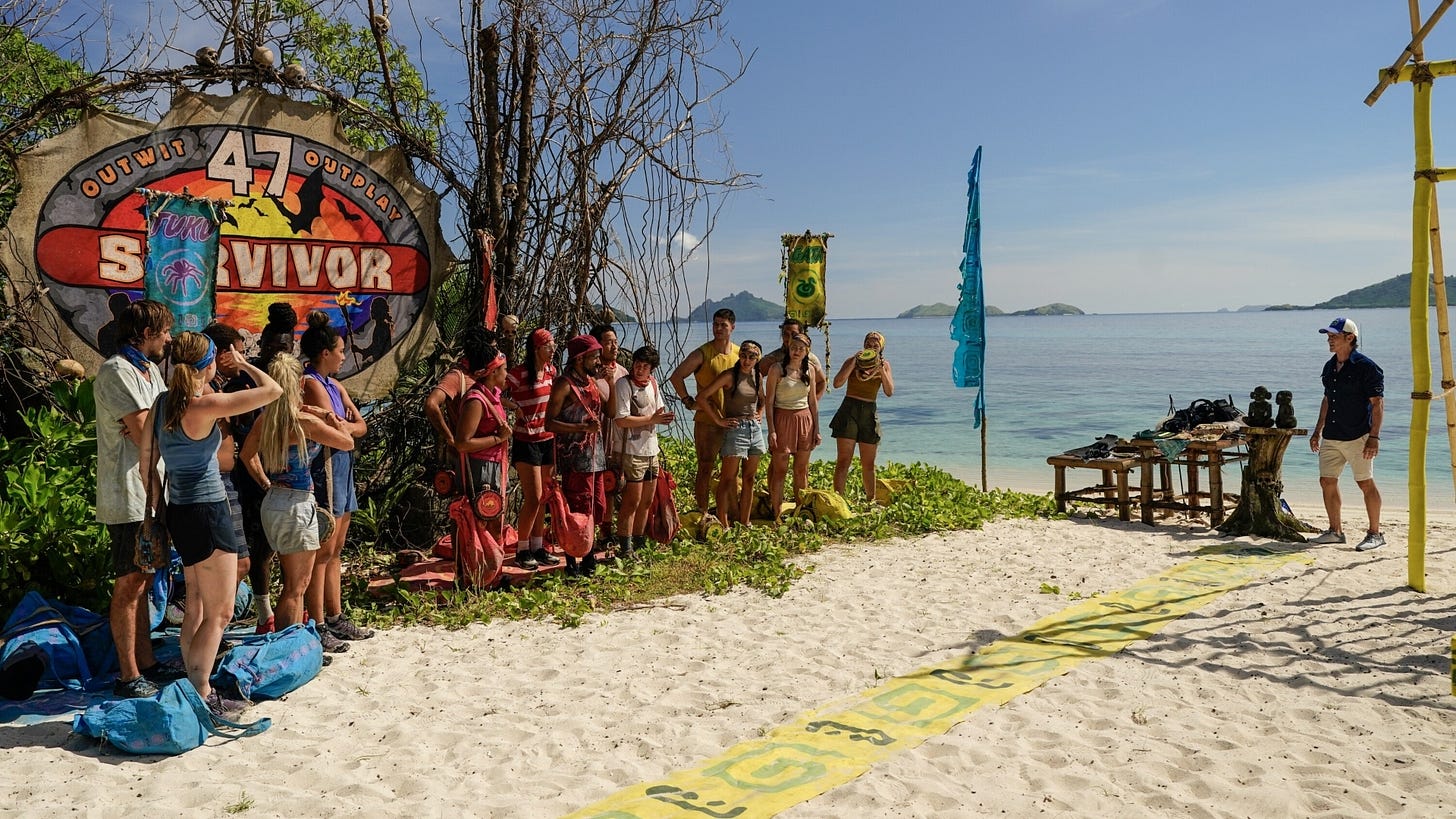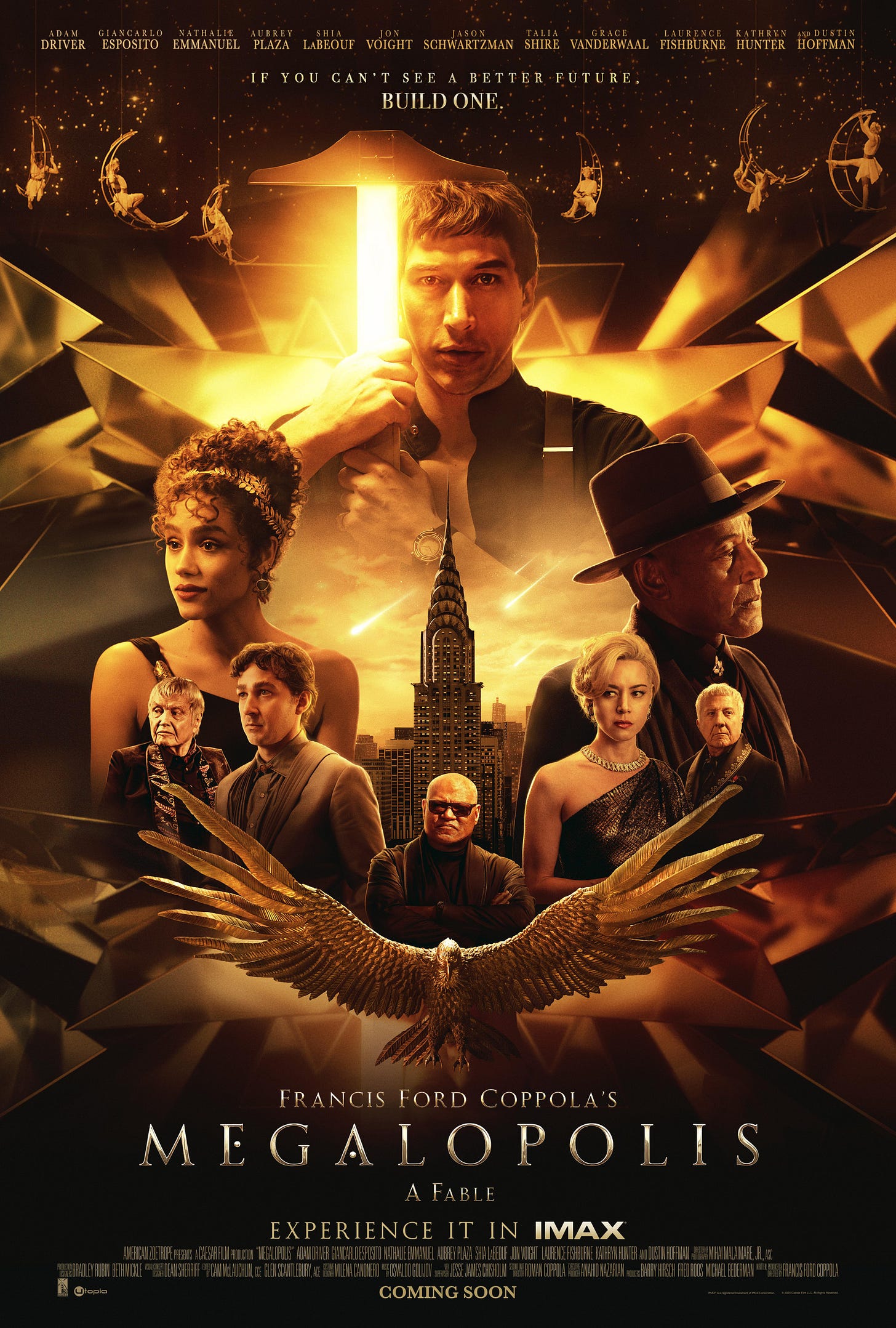
In her book Cue the Sun! The Invention of Reality TV, Emily Nussbaum outlines an entire history of the genre that has come to define much of the 21st century of American television, not to mention this particular era of American politics. Nussbaum’s book is littered with insightful excerpts, but this one continues to resonate with me:
“Fox television trained its audience to adopt a similar attitude. Like Mulder, they should want to believe; like Scully, they could revel in their skepticism. That cynical credulity (or credulous cynicism) would become the defining quality of American culture, in the reality genre, on the news, and in politics Shortly after the turn of the twenty-first century, a Manhattan hotel owner turned reality star would bank on it.”
A term like “cynical credulity” does indeed capture the fragility of the American way of life, not to mention our unfounded faith in our crumbling institutions. But if that American brand of cynicism defined an era of reality TV headlined by such carefully fabricated reality programs as Keeping Up With the Kardashians and The Real World, CBS’s genre stalwart Survivor has remained decidedly independent from that line of thinking.
For a show that first introduced itself to record-setting viewership with iconic speeches about Borneo’s rats and snakes, Survivor has rebranded itself over the last decade into an inspiring celebration of American diversity and perseverance, sharing its contestants’ colorful — and often tragic — backstories without so much as a wink. The show’s sincerity has helped it stand a cut above its peers in the genre, even as more recent seasons of Survivor can sometimes feel like advertisements for the show rather than actual episodes. Host and executive producer Jeff Probst constantly attests to the almost-spiritual magnitude of the Survivor experience, and players — at least the ones who know how to guarantee themselves airtime — are all too happy to follow suit.
Now in its 47th season, Survivor is deep into its so-called “new era,” characterized by an onslaught of twists and advantages, as well as the show’s network-mandated 50% BIPOC casting. The diversified casting process has undoubtedly been a net positive for the show; it is just unfortunate such an eclectic cast of characters has had to endure some of the game’s most boneheaded twists. From season 41 onward, Survivor has had varying degrees of success experimenting with a litany of complicated new ideas. If you have not kept up with the show in its latest era, terms such as “shot in the dark” or “knowledge is power” must sound foreign to you.
Of course, Survivor is like pizza. It is really good, even when it is bad. But the uneven quality of the new era is a perfect extension of the show’s self-aggrandizing celebration, nearly alienating even the most ardent of Survivor superfans. Survivor 47 has felt especially egregious in this department, straining the show’s brand of not-so-cynical credulity more than ever before. In just its first three episodes, Survivor 47 has shockingly embraced the kinds of extratextual elements that typically remain beyond the scope of the show’s storytelling, even if they also play a crucial role in making Survivor and its surrounding community so special. Contestant Aysha Welch, for example, is a well-known podcaster in the Survivor community. Welch is a recognizable name amongst reality TV obsessives, covering everything from Survivor to Big Brother to Love is Blind for Rob Has a Podcast, the popular podcast network founded by former Survivor contestant Rob Cesternino. It is not entirely shocking that Welch was cast on the show — if anything, it is more surprising that it took this long for the show to welcome an RHAP personality to Fiji — but it is a bit surprising to see Welch openly acknowledge her involvement with RHAP on-camera in her confessionals. After all, those references to a podcast network serving a specific subculture are likely to go over the heads of most viewers. Survivor, as a reality TV show, is not expected to ignore the outside world. In fact, the show is proud to embrace it, unpacking contestants’ countless tales of trauma and grief. But acknowledging a cultural artifact as narrowly understood by its audience as RHAP still extends the boundaries of Survivor’s self-contained environment, breaking a kind of unwritten contract between both parties.
Or perhaps no such contract exists. Few cultural landscapes are truly self-contained in this increasingly digital world, and it is only natural for the diversification of reality TV casting to invite an array of professional — let alone cultural — backgrounds. Nussbaum notes that the casting process for the very first season of Survivor excited the producers, who “felt liberated by the novelty of talking to real people, who felt unpredictable, loose, and strange.” But Survivor: Borneo premiered in 2000, before podcasting or social media could teach so-called “real people” how to behave on-camera or in front of a microphone.
Cory's Reads #39: Considering the Context
Blink Twice is a psychological thriller about the abuse of power.
Welch was the third person voted out of Survivor 47, following the first boot of the season, Pod Save America host and former Obama speechwriter Jon Lovett. Even more so than Welch, Lovett proved to be a dynamic narrator, weaving together compelling confessionals and answering Jeff Probst’s beachside questions with witty aplomb. He may have only appeared in one episode, but Lovett arrived in Fiji well aware of how he could maximize his time onscreen. That awareness is not unique to a public figure in this overtly self-aware era of Survivor, but it certainly helps to talk into a microphone for a living.
After all, compare Lovett with his tribemate Andy Rueda, whose mental break on the premiere episode of Survivor 47 appeared to altogether transcend the game at hand. As Andy panicked over his status within his tribe, wracked with guilt over his internal decision to betray Lovett, Survivor made the rare decision to peal the curtain back and show a group of cameramen filming Andy’s freakout at the immunity challenge. The 31-year-old’s self-consciousness was suddenly married with the show’s own sense of self-reflexivity. Andy’s anxiety may have ostensibly stemmed from the pressures of the competition, but it seemed to me that he had an acute awareness of his being on television, grappling with the implications of his every move being captured. Andy’s story is unfinished, and he may grow over the course of Survivor 47, but he strikes me as uneasy in front of the camera, the polar opposite of Lovett and Welch.
Somebody get this man a podcast.
If I am being cynical (and not even the credulous kind), I cannot help but wonder if this season’s odd emphasis on podcasting is part of the show’s attempt to promote On Fire with Jeff Probst, the official podcast of Survivor. For good measure, the art of podcasting gets a shout-out in the second episode of 47, when contestant Rome Cooney says he wants to be the next co-host of On Fire (Jeff selects a new survivor each season to join him in the booth.) Rome is by far the show’s biggest personality this season, so it is not surprising to hear him stake his claim. He says a lot of stuff! But when the show includes the quip, and then follows it up with a chyron for On Fire, it serves as a reminder of the show’s external environment, and calls into question the actual game being played. $1 million may be on the line, but contestants are simultaneously competing for airtime and opportunity, more attuned to audience perception than ever before.
Transmedia, the splintering of a single property across multiple platforms, has already transformed much of our fictional storytelling. It is not even an entirely new concept in the realm of reality TV — reunion shows and online clips have already been fleshing out reality TV narratives for years — but Survivor’s wholehearted embrace of new mediums and the storytelling opportunities they present may be ushering in a new era within this ostensible “new era.” Transmedia storytelling has already hampered major properties like the Marvel Cinematic Universe, however, alienating sects of the fanbase with the overwhelming demands of watching six different shows, movies, etc. Even as Survivor has expanded into 90-minute episodes, some of its most riveting content has been left on the cutting room floor. With so many advantages and journeys and challenges to track, screentime is at a premium. If story elements are to be outsourced to On Fire, and audiences are expected to maintain an awareness of the broader fandom, Survivor may no longer be much of a TV show at all.
Letterboxd Review of the Month
I'm often down for something this sprawling and strange, especially when you have Adam Driver channeling his work in Annette, one of the few films in recent memory that could reasonably out-weird Megalopolis. But what separates this disaster from comparable epics like Southland Tales or The Matrix: Resurrections is its utter incompetence, the one concern I did not have going into this final film from one of our greats. Alas, Megalopolis is not bad because of Coppola's unwieldy ambition (although it certainly doesn't help), but rather because it is clunky and ugly and poorly made. Jump cuts and sketchy ADR may be par for the course in a film so desperate to imprint its "cinematicness" upon us, but their effect is muted at best, offensive at worst. A film like Megalopolis was never going to fully work, but it is disappointing to find that Coppola and his collaborators never even gave it a chance. Perhaps the most damning thing I can say about the movie is that it lacks any sense of awe. For something of this scale, Megalopolis feels empty, textureless, and bland. I am often tempted to go to bat for these kinds of trashy big swings, but the filmmaking itself is too miserable to ignore.
Follow me on Letterboxd at @creid61, and keep up with the rest of my work on Instagram at @coryreid6125.
You can also support my work over at Buy Me a Coffee.






